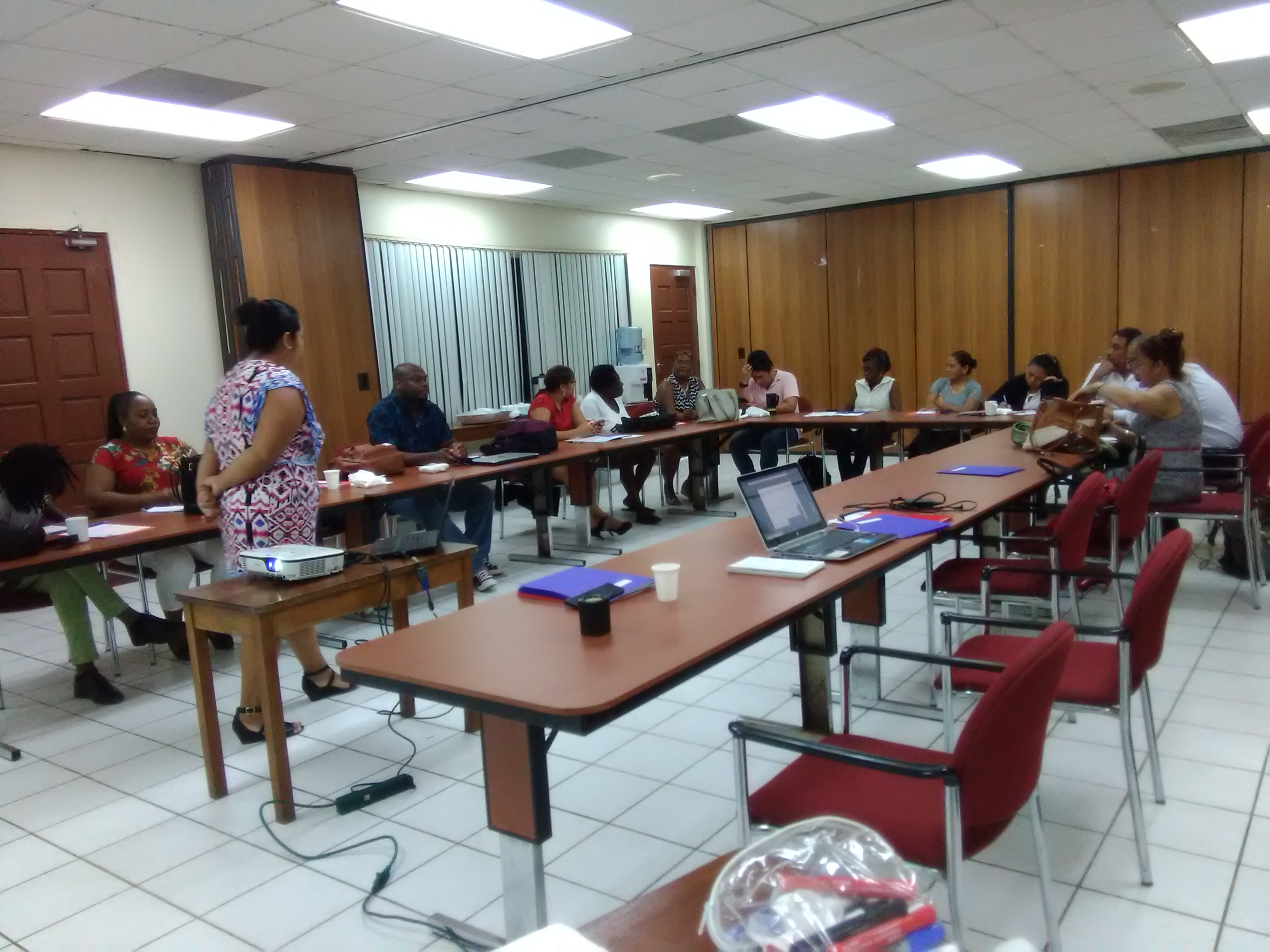
CRN+ conducts a series of Capacity Building Training for National Networks- Training supported the networks to address some capacity building gaps within their organisations
Image caption: Dr Minerva Pinelo conducting a capacity building session in Belize
The Caribbean Regional Network of People Living with HIV and AIDS (CRN+) has received a grant from the Caribbean Vulnerable Communities Coalition (CVC) for a project titled “CVC/COIN Challenging Stigma and Discrimination to Improve Access to and Quality of HIV Services in the Caribbean”.
Under output 3 of the grant, CRN+ is focusing on strengthening of community systems and key population networks to use effective advocacy strategies to obtain social accountability mechanisms and scale-up of best practice interventions by national programmes.
CRN+ conducted capacity building training from 15 July to 5 August 2019 in Belize, Dominican Republic, Suriname and the Republic of Trinidad and Tobago. The training activities involved over seventy (70) representatives from CRN+ networks, National AIDS Programmes and other key population networks that collaborate with CRN+.
The training focused on three key topic areas including finance essentials and accountability, monitoring and evaluation systems and fundraising essentials.
The fundamental purpose of the capacity building training was to contribute to strengthening the CRN+ networks and increasing the capacity of members to be more effective partners in their national HIV response.
The series of capacity building training provided opportunities for CRN+ to convene additional meetings with representatives of National AIDS Programmes, Ministry of Industry and Commerce and other organisations, to discuss opportunities for improving collaboration with CRN+ national affiliates and leveraging technical and financial support for income generation and other sustainability activities.
WHAT IS PANCAP?
PANCAP is a Caribbean regional partnership of governments, regional civil society organisations, regional institutions and organisations, bilateral and multilateral agencies and contributing donor partners established on 14 February 2001. PANCAP provides a structured and unified approach to the Caribbean’s response to the HIV epidemic, and coordinates the response through the Caribbean Regional Strategic Framework on HIV and AIDS to maximise efficient use of resources and increase impact, mobilise resources and build the capacity of partners.
What are the Global AIDS Strategy 2021–2026 targets and commitments?
If targets and commitments in the strategy are achieved:
- The number of people who newly acquire HIV will decrease from 1.7 million in 2019 to less than 370 000 by 2025
- The number of people dying from AIDS-related illnesses will decrease from 690 000 in 2019 to less than 250 000 in 2025.
- The goal of eliminating new HIV infections among children will see the number of new HIV infections drop from 150,000 in 2019 to less than 22,000 in 2025.
What are the 95-95-95 Targets for ending AIDS?
- 95% of People Living with HIV know their HIV status;
- 95% of people who know their status on treatment; and
- 95% of people on treatment with suppressed viral loads.
HELPFUL LINKS:
Global AIDS Strategy 2021–2026, End Inequalities, End AIDS
https://pancap.org/pancap-documents/global-aids-strategy-2021-2026-end-inequalities-end-aids/
Caribbean Regional Strategic Framework on HIV and AIDS (CRSF) 2019-2025
https://pancap.org/pancap-documents/caribbean-regional-strategic-framework-2019-2025/
